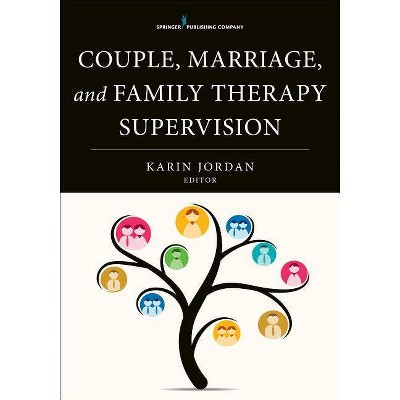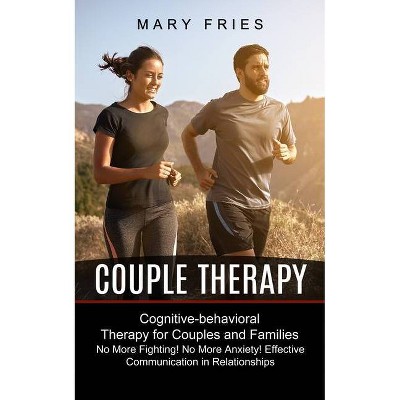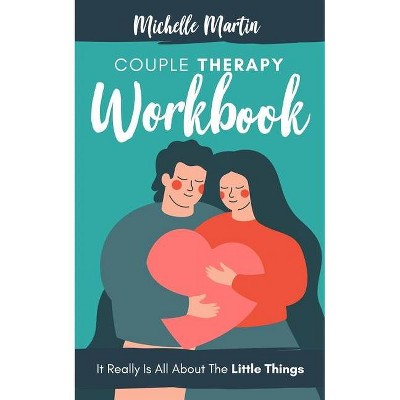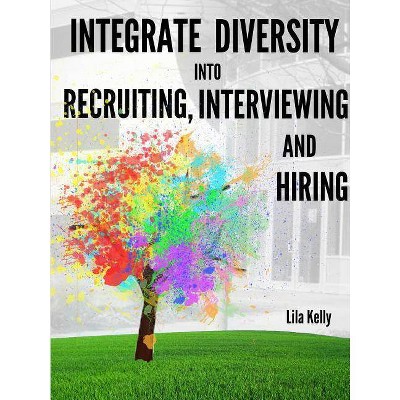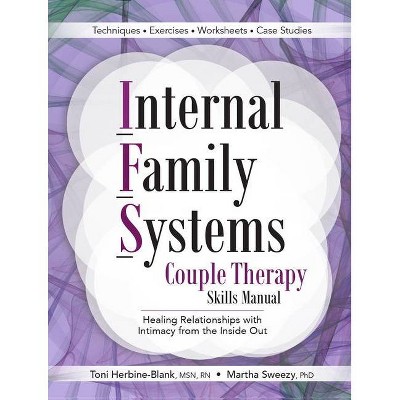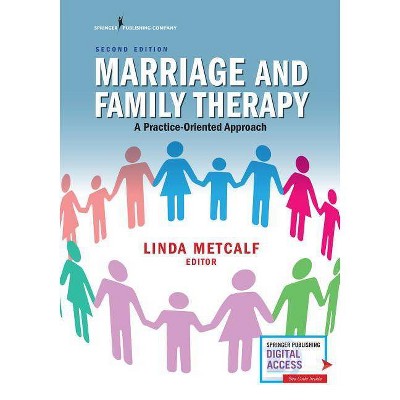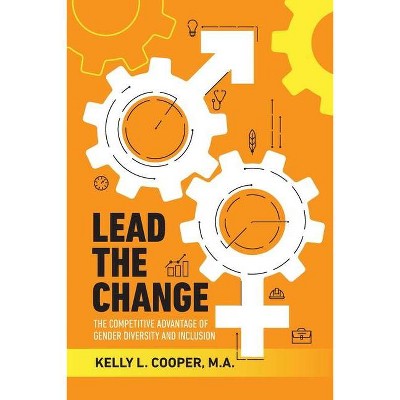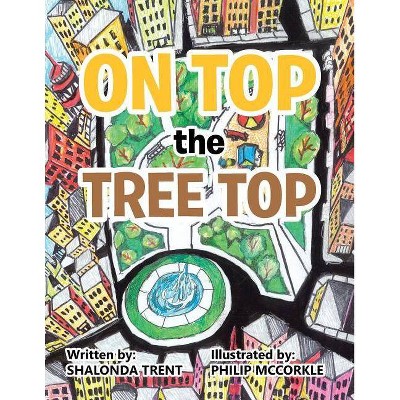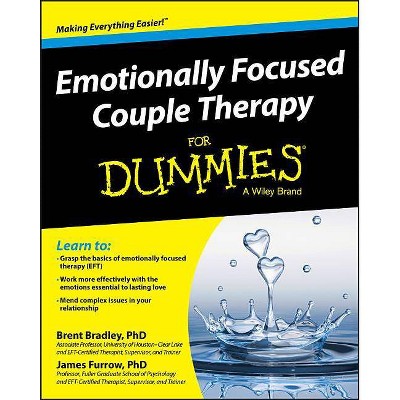Diversity in Couple and Family Therapy - by Shalonda Kelly (Paperback)
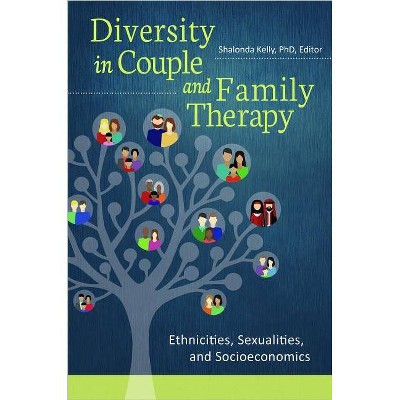
Similar Products
Products of same category from the store
AllProduct info
<p/><br></br><p><b> About the Book </b></p></br></br><p>This unprecedented volume provides a primer on diverse couples and families--one of the most numerous and fastest-growing populations in the United States--illustrating the unique challenges they face to thrive in various cultural and social surroundings.</p><p><br/>In <i>Diversity in Couple and Family Therapy: Ethnicities, Sexualities, and Socioeconomics</i>, a clinical psychologist and couples and family therapist with nearly two decades' experience leads a team of experts in addressing contemporary elements of diversity as they relate to the American family and covering key topics that all Americans face when establishing their identities, including racial and ethnic identity, gender and sexual orientation identity, religious and spiritual identity, and identity intersections and alternatives. Moreover, it includes chapters on cross-cultural assessment of health and pathology and tailoring treatment to diversity. </p><p></p><p>Every chapter includes vignettes that serve to illustrate the nuances of and solutions to the concerns and issues, as well as the strengths and resilience often inherent in diverse couples or families. Effective methods of coping with stereotypes, intergenerational trauma, discrimination, and social and structural disparities are presented, as are ways to assess and empower couples and families. This text includes experiences and traditions of subgroups that typically receive little attention from being seen as too common, such as white and Christian families, or from being seen as too uncommon, such as couples and families from specific Native American tribes and multiracial couples and families. Thus, it addresses the curricular changes needed to master the diversity found in contemporary American couples and families.</p><p></p><p>The text offers a holistic perspective on diverse couples and families that is consistent with the increasing prominence of models that transcend individual diagnoses and biology to include social factors and context. Theory, policy, prevention, assessment, treatment, and research considerations are included in each chapter. Topics include African American, Asian American, Latino, Native American, white, biracial/multiracial, intercultural, LGBT, Christian, Jewish, and Muslim couples and families as well as diverse family structures. The depth of every chapter includes attention to subgroups within each category, such as African American and Caribbean couples and families, as well as those who represent the intersection between varying oppressed identities, such as an intercultural gay family, or a poor, homeless interracial couple. Additionally, each chapter provides a review section with condensed and easy-to-understand summaries of the key take-away lessons.</p><p><br/><ul></p><p><li>Offers an examination of a broader-than-typical array of diverse families and the challenges they face</li></p><p><li>Includes case vignettes of couples and families of varying racial/ethnic, socioeconomic, religious/spiritual, and sexual orientations, the subgroups among them, and their intersections</li></p><p><li>Examines issues including social disparities, stereotyping and discrimination, identity development, and the roles of neighborhoods and communities</li></p><p><li>Written to allow easy incorporation as a textbook or supplemental text</li></p><p><li>Includes highlighted Myths and Realities with each chapter as well as a list of additional resources and cultural competence take-aways after each section</li></p><p></ul></p><p/><br></br><p><b> Book Synopsis </b></p></br></br><p>In <i>Diversity in Couple and Family Therapy: Ethnicities, Sexualities, and Socioeconomics</i>, a clinical psychologist and couples and family therapist with nearly two decades' experience leads a team of experts in addressing contemporary elements of diversity as they relate to the American family and covering key topics that all Americans face when establishing their identities, including racial and ethnic identity, gender and sexual orientation identity, religious and spiritual identity, and identity intersections and alternatives. Moreover, it includes chapters on cross-cultural assessment of health and pathology and tailoring treatment to diversity. </p><p></p><p>Every chapter includes vignettes that serve to illustrate the nuances of and solutions to the concerns and issues, as well as the strengths and resilience often inherent in diverse couples or families. Effective methods of coping with stereotypes, intergenerational trauma, discrimination, and social and structural disparities are presented, as are ways to assess and empower couples and families. This text includes experiences and traditions of subgroups that typically receive little attention from being seen as too common, such as white and Christian families, or from being seen as too uncommon, such as couples and families from specific Native American tribes and multiracial couples and families. Thus, it addresses the curricular changes needed to master the diversity found in contemporary American couples and families.</p><p></p><p>The text offers a holistic perspective on diverse couples and families that is consistent with the increasing prominence of models that transcend individual diagnoses and biology to include social factors and context. Theory, policy, prevention, assessment, treatment, and research considerations are included in each chapter. Topics include African American, Asian American, Latino, Native American, white, biracial/multiracial, intercultural, LGBT, Christian, Jewish, and Muslim couples and families as well as diverse family structures. The depth of every chapter includes attention to subgroups within each category, such as African American and Caribbean couples and families, as well as those who represent the intersection between varying oppressed identities, such as an intercultural gay family, or a poor, homeless interracial couple. Additionally, each chapter provides a review section with condensed and easy-to-understand summaries of the key take-away lessons.</p><p/><br></br><p><b> Review Quotes </b></p></br></br><br><p>A superb contribution to the literature in family therapy and cultural competence. . . . The book is quite comprehensive and contemporary in focus. . . . This book is a superb resource for family therapists, educators in family systems theory and therapy, and health care professionals. Graduate- and doctoral-level students will find this book a welcome addition to their personal libraries. Summing Up: Essential.</p>-- "<p><i>Choice</i></p>"<br><br><p>Kelly's text provides a comprehensive introductory overview to many aspects of diversity that may be addressed in the context of couple and family therapy. The variety in scope and depth of exploration varies chapter to chapter such that this work would be a valuable resource for undergraduate, graduate, and early career professionals. . . . There are many facets to Kelly's book that were appealing. <i>Diversity in Couple and Family Therapy</i> is not a textbook that conforms to the standard way of describing history and culture, but rather incorporates multiple perspectives that allow for those belonging to minority groups to feel that they may find relevant information pertaining to their specific identity.</p>-- "<p><i>PsycCRITIQUES</i></p>"<br><p/><br></br><p><b> About the Author </b></p></br></br><p><b>Shalonda Kelly</b>, PhD, is clinical psychologist and associate professor at Rutgers University.</p>
Price History
Cheapest price in the interval: 80 on November 6, 2021
Most expensive price in the interval: 80 on February 4, 2022
Price Archive shows prices from various stores, lets you see history and find the cheapest. There is no actual sale on the website. For all support, inquiry and suggestion messagescommunication@pricearchive.us
